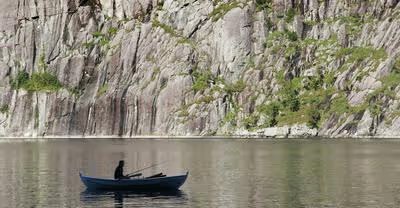
Key Takeaways
- Sustainable boating practices are essential for preserving our lakes and waterways.
- Eco-friendly technology and measures can reduce boaters' carbon footprint.
- Regulatory frameworks support the shift toward more sustainable boating habits.
Globally, people are shifting to sustainable boating practices. Let’s explore the reasons why everyone is buzzing about sustainable lake boating practices.
Everyone is buzzing about sustainable lake boating practices due to pollution prevention, wildlife conservation, habitat restoration, resource conservation, and erosion control. These practices also prevent invasive species and promote long-term sustainability and community engagement.
Over the years, I’ve developed a comprehensive understanding of the complexities surrounding sustainable boating practices and their significance in preserving aquatic ecosystems. My knowledge encompasses various aspects of sustainable lake boating, including eco-friendly propulsion systems.
Why Is Everyone Buzzing About Sustainable Lake Boating Practices?
You've probably noticed the buzz around eco-friendly practices on lakes and why they're important. Think crystal-clear waters and thriving marine life—all coming from responsible boating habits.
So, why are sustainable boating practices the talk of the town? Because we're seeing the effects of neglect on our beloved lakes. From oil spills staining the water to wildlife facing extinction, it's now, more than ever, crucial to act.
Let's delve into the buzz about sustainable lake boating practices and highlight the importance of eco-friendly boating.
Pollution Prevention
The sight of a lake tarnished by trash and oil sheens is not only visually unappealing but also indicative of significant environmental degradation with far-reaching consequences.
When pollutants such as trash and oil accumulate in lakes, they pose a serious threat to water quality and ecosystem health.
To keep lakes pristine:
- Avoid Oil and Fuel Spills: Use fuel pads and ensure proper engine maintenance.
- Skip the Suds: Choose eco-friendly detergents that won't harm aquatic life.
Wildlife Conservation
Fishing responsibly is a critical practice for maintaining the delicate balance of ecosystems within lakes and other water bodies.
When anglers engage in responsible fishing practices, they help preserve the health and sustainability of fish populations while minimizing negative impacts on the broader aquatic ecosystem.
Remember:
- Practice Catch and Release: Make sure fish populations stay healthy for generations.
- Monitor Your Speed: Avoid collision with wildlife by adhering to speed limits.
Habitat Restoration
Seagrass beds are indeed critical ecosystems that provide essential habitat and serve as underwater nurseries for a wide variety of marine life.
These lush underwater meadows are home to an incredible diversity of plant and animal species, making them one of the most productive and biodiverse habitats in the ocean.
Here's how to help:
- Use mooring buoys instead of anchors to avoid damaging the beds.
- Participate in clean-up drives; they do wonders for restoring habitats.
Resource Conservation
Lakes, while seemingly vast and abundant, are not limitless resources and require meticulous management to sustain their ecological health and abundance.
These bodies of water serve as crucial ecosystems, supporting a diverse array of plant and animal life while also providing vital resources and recreational opportunities for communities around the world.
However, factors such as pollution, habitat destruction, overfishing, and climate change pose significant threats to the delicate balance of lake ecosystems. So:
- Respect fishing quotas and size restrictions.
- Use reusable items over disposables to minimize waste.
Erosion Control
Shoreline erosion is a significant concern that arises when we fail to implement careful management practices around our lakes and other bodies of water.
As shorelines erode, several detrimental consequences emerge, including loss of valuable habitat for aquatic and terrestrial species and degradation of water quality due to increased sedimentation.
To preserve them, consider:
- Implementing buffer zones with native vegetation.
- Reducing wake by slowing down near shores.
Invasive Species Prevention
Aquatic invasive species (AIS) pose a significant threat to the health and integrity of ecosystems within lakes and other water bodies.
These unwelcome guests, often introduced accidentally or intentionally by human activities, can rapidly proliferate and outcompete native species, disrupting ecological balance and causing widespread harm.
To keep them at bay:
- Clean your boat thoroughly before moving to a different body of water.
- Be vigilant and report any sightings of invasive species to the authorities.
Long-Term Sustainability
To ensure lakes remain vibrant for the future:
- Support conservation efforts and policies.
- Educate fellow boaters on sustainable practices.
Community Engagement
Getting everyone aboard is key to making a change:
- Join local conservation groups.
- Share your knowledge and experiences about eco-friendly boating.
Tips for Reducing Carbon Footprints When Boating
Reducing carbon footprints when boating is essential for preserving marine ecosystems and minimizing environmental impact.
Here are some tips to help boaters minimize their carbon footprint:
- Choose Eco-Friendly Propulsion: Consider upgrading to electric or hybrid propulsion systems, which produce fewer emissions compared to traditional gasoline or diesel engines.
- Optimize Fuel Efficiency: If sticking with conventional engines, prioritize fuel-efficient practices such as maintaining proper engine tune-ups, reducing idle time, and operating at lower speeds whenever possible.
- Embrace Renewable Energy: Utilize solar panels or wind turbines to generate clean energy onboard. Solar panels can charge batteries or power onboard electronics, while wind turbines can supplement propulsion or auxiliary power needs, reducing reliance on fossil fuels.
- Practice Sustainable Navigation: Plan routes carefully to minimize fuel consumption and avoid sensitive marine habitats such as coral reefs and seagrass beds.
- Reduce, Reuse, Recycle: Implement waste reduction strategies onboard by minimizing single-use plastics and packaging. Opt for reusable items such as water bottles, utensils, and containers.
- Choose Sustainable Products: When purchasing boating equipment, opt for environmentally friendly products made from sustainable materials. Look for eco-certifications such as the Blue Flag eco-label for marinas or products certified by organizations like the Marine Stewardship Council (MSC) for sustainable seafood.
- Practice Eco-Friendly Maintenance: Use eco-friendly cleaning products to minimize water pollution and avoid toxic chemicals that can harm aquatic life.
- Participate in Clean-Up Efforts: Get involved in local clean-up initiatives to remove litter and debris from waterways.
The Latest Trends in Green Boating Technology
As the world's collective consciousness shifts towards sustainability and environmental stewardship, industries across the board are embracing innovative solutions to reduce their ecological footprint – and the boating industry is no exception.
In recent years, there has been a surge in the development and adoption of green boating technology, reflecting a growing demand for environmentally friendly alternatives among boaters and marine enthusiasts.
Here are some of the trends in green boating technology:
Innovative Propulsion Systems:
- Electric and hybrid boats are on the rise; they are quiet, efficient, and emissions-free.
- Outboard engines are now available in electric models, making the switch to green easier.
- Biodiesel options offer a renewable energy source for boats typically running on diesel.
Boat Manufacturing Advances:
- Use of eco-friendly materials such as carbon fiber or Kevlar in hull construction.
- Design enhancements that reduce water resistance and, consequently, fuel consumption.
Renewable Energy Integration:
- Solar panels are being used for supplementary power on boats.
- Wind turbines on some models help harness nature's energy for electricity or propulsion.
The Role of Regulatory Frameworks in Promoting Sustainable Boating Practices
Navigating the world's waterways offers boaters a unique perspective on the beauty of nature and the thrill of adventure.
However, as the popularity of recreational boating continues to rise, so too do the challenges of preserving marine ecosystems and ensuring responsible stewardship of our aquatic resources.
Regulatory frameworks play a pivotal role in promoting sustainable boating practices by establishing guidelines, standards, and enforcement mechanisms to safeguard the environment while fostering a culture of conservation among boaters.
Below, we'll look at how laws and guidelines are setting the course for responsible boating:
As a boater, understanding these frameworks is like learning the ropes before you hit the water—it's essential. Not only do you get to enjoy the lake knowing you're part of the solution, but you also align with industry pioneers who are steering this ship toward a greener horizon.
Frequently Asked Questions
Here are the FAQs about sustainable lake boating practices.
What are some eco-friendly practices marinas can adopt to promote sustainability?
Encouraging the use of non-toxic cleaning products and implementing systems for waste management and recycling can have a substantial impact. It's not just about keeping the place looking spick and span; it's about ensuring the water stays as clear as our conscience.
How can the use of environmentally friendly boat cleaning products impact lake health?
Opting for biodegradable, phosphate-free cleaners means you're not contributing to water pollution. Just by making this switch, you help maintain the delicate balance of lake ecosystems. It's a simple step, but your lake will thank you for it.
What role do boaters play in preventing water pollution and maintaining biodiversity?
As boaters, every action you take can contribute to cleaner water and happier habitats. From proper fuel handling to respecting no-wake zones and avoiding sensitive areas, your actions go a long way. You have the power to protect biodiversity and keep our lakes thriving.


